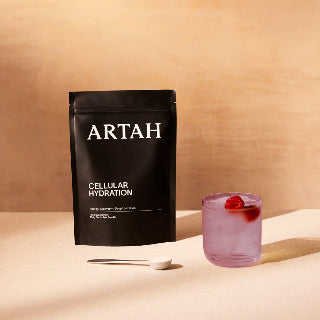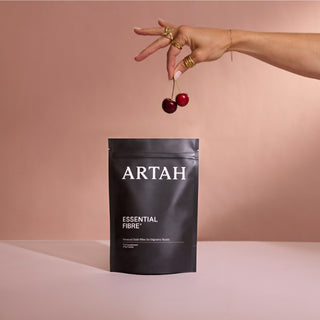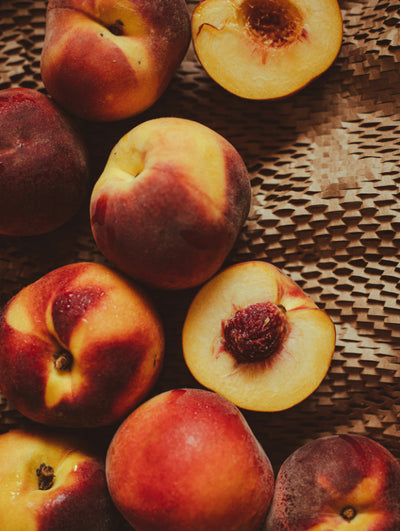It’s no surprise to see appetite spike when your nutrition is inconsistent, but what if you feel you’re doing (and eating) all the right things, and you’re still ravenous? Appetite is complex and controlled by a variety of factors, so whilst cultivating consistent and healthful food habits is important to help stabilise cravings, there are other non-food factors that come into play. Here are 3 reasons you’re always hungry – which aren’t related to food.
1. Not enough sleep.
Lack of sleep is a killer for so many reasons. It impacts immunity, mood, recovery, and focus, and it also wreaks havoc on our ability to manage appetite and cravings. Why? When we lack sleep, the reward centres in our brain are heightened, which leads us to seek-out a things that increase dopamine. In turn, this makes us more likely to grab sugary or more hedonic foods to satisfy this craving. (1) In addition to its impact on craving reward foods, it increases our appetite. Studies have revealed that levels of Ghrelin, the hormone that causes hunger, is elevated from lack of sleep, leading to more hunger and a decreased feeling of satiety. (1) Finally, lack of sleep can also increase our stress hormones and decrease our sensitivity to insulin, which sets us up for a blood sugar roller coaster.
What to do: The obvious answer is to get more sleep, but that’s not the most helpful answer - especially for parents. If getting more hours just isn’t possible, then turning your focus to restful practices is important. Research has shown that meditation and mindfulness can help combat the physiological changes associated with lack of sleep, like increased cortisol, hunger, and inflammation. Other practices like yoga nidra or yin yoga can be equally as impactful at helping the system wind down.
What to try: Reduce added sugars, be mindful of total caffeine and especially caffeine in the afternoon, and of course, be mindful of alcohol – which is notoriously bad for sleep. Studies have shown that just one drink for women and two drinks for men can cause a 24% reduction in sleep quality. (2) Magnesium, known as the calming mineral, can be particularly helpful as a sleep support, especially if stress is one of the reasons why sleep quality is impaired. Try Essential Magnesium, which has 300mg of elemental magnesium from Magnesium Glycinate and Magnesium Malate.
2. Not enough muscle.
Muscle mass is one of the most important factors in blood sugar control. Because it's metabolically active it acts as a reservoir for glucose, removing glucose from the bloodstream – independent of insulin - to use as fuel or store as glycogen. Think of muscle like a sink that can hold extra glucose, without impacting fat mass. When we lack muscle mass, we have less tolerance for excess blood glucose (and therefore higher intakes of carbohydrates and sugar), which makes us more susceptible to spikes in insulin and over time, a dysregulation of the hormones that control appetite.
What to do: Make sure you add strength training to your routine and aim for three sessions each week. If you’re over the age of 35 this is especially important; muscle mass declines naturally with age and at the same time, we become more resistant to building muscle. This means we need a little more effort to have the same effect. It's also important to ensure your protein intake is adequate to fuel muscle growth and maintenance. The RDA is 0.8g per kg of bodyweight to prevent deficiency, but it's a good idea to aim for 1-1.2g per kg of bodyweight, from a variety of sources, to support your strength training goals.
3. Inadequate hydration.
It’s logical to assume that hunger drives us to eat, and thirst drives us to drink, but it turns out that thirst will also drive us to eat. Adequate hydration is essential for our metabolism to run smoothly, and many processes involved in energy balance – like the release of stored glycogen to use as energy – require water to happen. When we’re dehydrated, it can impair our ability to release energy from glycogen, causing a dip in energy and increase cravings (especially for sugar).
Electrolytes balance is also important. When these essential minerals are imbalanced, the body signals an increase in appetite and cravings in an attempt to replenish the nutrients it needs from food intake, which can create a false sense of hunger. A low-carb diet, too many processed foods, exercise, alcohol, coffee and stress can all contribute.
What to do: If you still don’t have a water vessel for your desk, it’s time to cave. We recommend getting 1L on your desk and getting through one in the morning and one in the afternoon. Try Cellular Hydration, our go-to electrolyte blend with important minerals for stress, mood and physical activity. If you’re a coffee lover this is especially beneficial to have in the morning before your first cuppa; we're naturally dehydrated when we wake, so replenishing our electrolytes first thing will set us up for a better day with fewer spikes and crashes in hunger, mood and energy. Add 1 tsp to at least 500 mls of water and enjoy.
Disclaimer: The information presented in this article is for educational purposes only and is not intended to diagnose, prevent, or treat any medical or psychological conditions. The information is not intended as medical advice, nor should it replace the advice from a doctor or qualified healthcare professional. Please do not stop, adjust, or modify your dose of any prescribed medications without the direct supervision of your healthcare practitioner.
References:
1. Julia S. Rihm, Mareike M. Menz, Heidrun Schultz, Luca Bruder, Leonhard Schilbach, Sebastian M. Schmid, Jan Peters. Sleep Deprivation Selectively Upregulates an Amygdala–Hypothalamic Circuit Involved in Food Reward. Journal of Neuroscience 30 January 2019, 39 (5) 888-899; DOI:10.1523/JNEUROSCI.0250-18.2018
2. https://www.sleepfoundation.org/nutrition/alcohol-and-sleep
3. McKiernan F, Houchins JA, Mattes RD. Relationships between human thirst, hunger, drinking, and feeding. Physiol Behav. 2008 Aug 6;94(5):700-8. doi: 10.1016/j.physbeh.2008.04.007. Epub 2008 Apr 13. PMID: 18499200; PMCID: PMC2467458.



















































